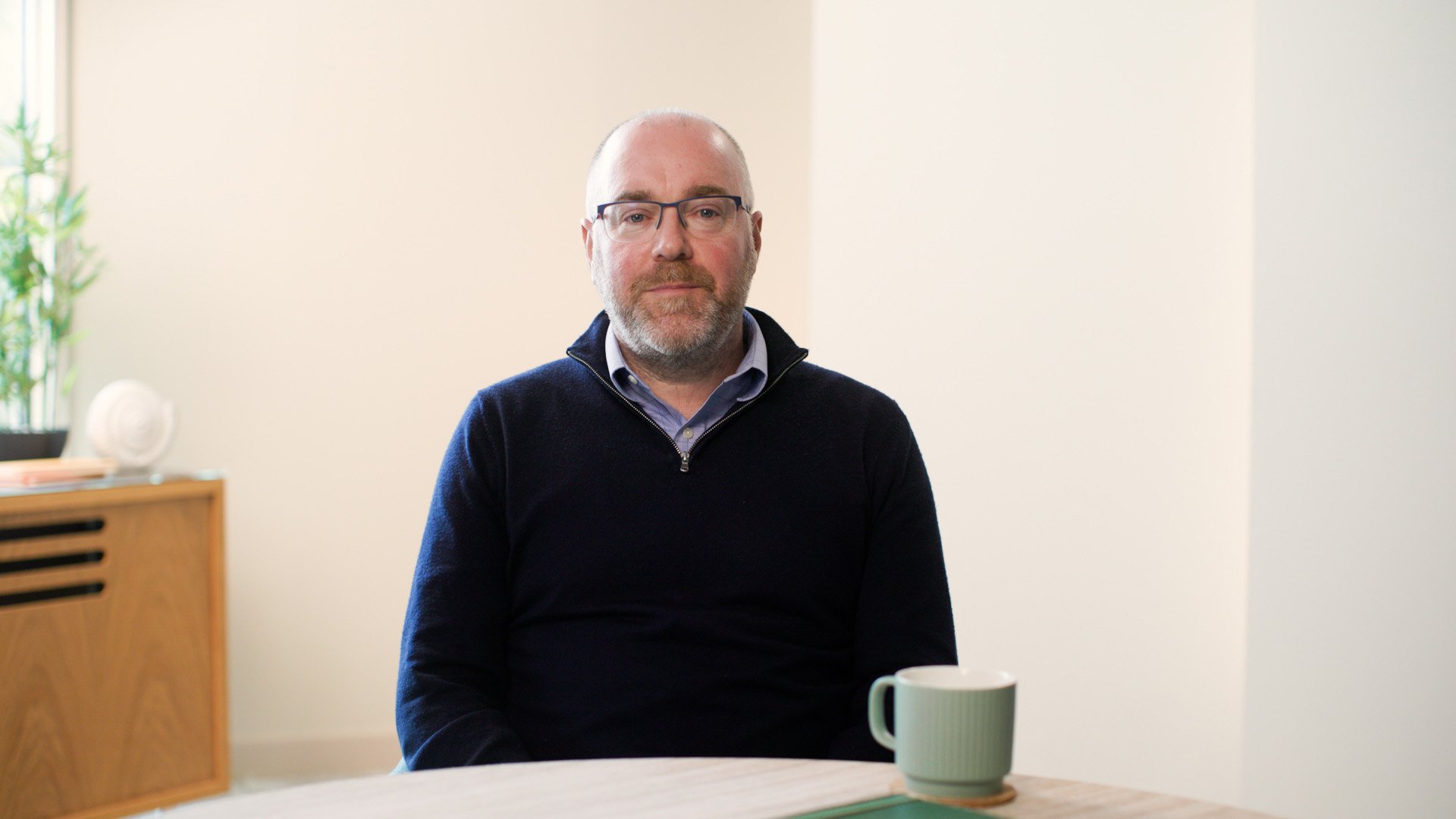Investment manager Douglas Brodie discusses the trust's performance, philosophy and potential for future growth.
As with any investment, your capital is at risk. Past performance is not a guide to future returns.
Hello. I’m Douglas Brodie, one of the co-managers the Edinburgh Worldwide Investment Trust (EWIT).
Today, I'm going to remind you what we seek to achieve with EWIT, how we have responded to the performance challenges in recent years, update you on your portfolio and explain why we think this is set to pay off handsomely for shareholders in the years ahead.
EWIT’s philosophy
Two founding observations were critical in forming the investment philosophy and approach we have used to manage EWIT since early 2014. First, innovation and technological progress are the strongest compounding forces that drive society and stock markets forward.
Second, all change and innovation, even in their most profound forms, have tentative and initially uncertain beginnings. From Nvidia selling GPUs to gamers, to Amazon selling books online, to google building search engines to rank scientific citations, the patterns are clear.
It’s for these reasons that we remain obsessed with the technological and scientific drivers of change. We seek entrepreneurial companies early in their life cycle, when less mature, and below the radar – and we look to retain these special businesses as they grow and as they thrive
Yet our chosen path is not easy. In assessing immature companies, we must strike a tricky balance between assessing long-term potential alongside practical concerns: commercial execution, long-term scalability, and, most importantly, the prospect for attractive returns.
We will not get that judgment correct for each singular investment. A higher-than-average individual failure rate is to be expected, and we’ve been very explicit about with shareholders. Yet, where we’re proven right, when technological progress, commercial execution, and profound scalable opportunities combine, the outcomes can be spectacular and the rewards enormous.
Our core beliefs are unchanged, and we sense the inefficiencies we seek to exploit are actually becoming deeper. However, the last few years have presented a challenging backdrop for EWIT’s outlined philosophy and approach.
Process improvements
The global pandemic directly led to an abrupt rise in inflation and interest rates, and that impacted on the business environment and equity valuations broadly but it really hit the earliest-stage companies most acutely – an area to which we carry a deliberate and structural skew.
In addition, we have made some mistakes in execution. It is essential to acknowledge and be upfront about this. EWIT’s shareholders have seen highs and lows over the last decade. But we recognise the last three years of poor performance have been very frustrating for shareholders.
Over the past year, with crucial challenge and support of the Board, we have sought to apply lessons in the context of investment processes and portfolio management.
One area of improvement relates to how we balance the need to patiently support long-term management team visions with the need to hold companies accountable for strong execution.
Additional process checks and balances have been introduced to ensure that our patience doesn’t stretch too far for holdings that are encountering a bumpy ride. This has a bearing on how we size positions and ultimately how we time eventual exits.
We have also sought to increase the share of profitable, cash-generating names in the portfolio and bolster industrial diversification to reflect the investment environment that we anticipate in the years ahead. This has resulted in a better-balanced portfolio with stronger sales and earnings growth.
Performance
Recent investment performance has stabilised and we believe that 2024 will prove to be a significant turning point for EWIT. Combined with our enduring enthusiasm for our mission, we’re energised by a sense that we are entering a new period for returns. Indeed, the last 6 months has been very encouraging on this front with many of our holdings seeing robust fundamental progress that is translating into strong near-term NAV and share price growth.
The portfolio’s top-line growth has meaningfully accelerated over the last year and is set to accelerate further. Following a challenging 2023, many of our holdings have adapted and are re-prioritising expansion. The portfolio feels primed for an exciting period, with our relatively more developed companies now hitting their stride and a wave of newly incubated ideas set to hatch.
At the same time the portfolio valuations remain undemanding. Following the turbulence of recent years, the small-cap asset class continues to trade on a wide discount relative to its long-term average and larger cap peers.
Looking forward
The world certainly faces challenges over the coming years. Heightened geopolitical instability intuitively feels less comfortable than the pro-globalisation, more harmonious backdrop that presided before.
Yet amidst this, we see tremendous opportunity. Across the portfolio, we see signs of an upcoming golden age of human ingenuity and engineering prowess. The backdrop may be more volatile, but the tools to navigate it are exploding in both their relevance and applicability.
While AI is the topic de jour, we strongly suspect that quantum computing is the next significant unlock for computing. Solving this will transform how we tackle simulation and modelling in every industry. While this remains early, our large holding in privately held business PsiQuantum is at the forefront of making the technology both practical and commercially relevant. And we think it will do that in a time frame that will surprise many.
While computing power is the current technology prism for geopolitical squabbles, this will surely shift towards space technology over the coming decade. Developing and maintaining a strategic advantage in the earth’s orbit will become the key military, communications and industrial frontier, with both nations and companies all looking to assert their dominance. We initially made a private investment in SpaceX in 2018. Despite its progress having already returned almost 10 times our initial investment, it feels likely that this really is just approaching the precipice of generalised relevance in multiple domains.
And the healthcare field continues to fascinate and excite. Development timelines are admittedly long, but our experience with Alnylam shows that patience can be handsomely rewarded for companies that meaningfully change the odds of clinical success.
These examples are timely reminders that EWIT occupies the frontiers of technology, and we relentlessly pursue innovation across asset classes, geographies, and sectors. This results in a distinct investment offering, which, despite its recent challenges, retains enormous long-term relevance.
At its core, we construct the EWIT portfolio to reflect how the world is evolving and which companies are best positioned to both drive and benefit from that evolution.
The resulting portfolio contains a unique mix of early-stage, but high-potential assets sourced from public and private markets, the latter of which is notoriously difficult for many investors to access cost-effectively.
This offers shareholders a front-row seat to companies shaping tomorrow, with no obvious peer in the UK. Thank you.
Annual past performance to 31 December each year (net%)
| 2020 | 2021 | 2022 | 2023 | 2024 | |
|
Share Price |
87.7 |
-21.0 |
-39.8 |
-10.9 |
24.0 |
|
Net Asset Value |
85.5 |
-17.4 |
-34.4 |
-4.8 |
6.3 |
|
Index* |
12.6 |
16.4 |
-7.9 |
9.4 |
10.3 |
*S&P Global Small Cap Index.
Source: Baillie Gifford & Co, Morningstar, S&P. Total return, sterling.
Past performance is not a guide to future returns.
Legal notices: The S&P 500, S&P Global SmallCap and Dow Jones Islamic Market World (index) are products of S&P Dow Jones Indices LLC or its affiliates ("SPDJI"), and has been licensed for use by Baillie Gifford & Co. S&P®, S&P 500®, US 500, The 500, iBoxx®, iTraxx® and CDX® are trademarks of S&P Global, Inc. or its affiliates ("S&P"); Dow Jones® is a registered trademark of Dow Jones Trademark Holdings LLC ("Dow Jones"); and these trademarks have been licensed for use by SPDJI and sublicensed for certain purposes by Baillie Gifford & Co. Baillie Gifford & Co Product(s) are not sponsored, endorsed, sold or promoted by SPDJI, Dow Jones, S&P, their respective affiliates and none of such parties make any representation regarding the advisability of investing in such product(s) nor do they have any liability for any errors, omissions, or interruptions of the S&P 500, S&P Global Small Cap and Dow Jones Islamic Market World Index.
Important information and risk factors
This film was produced and approved in January 2025 and has not been updated subsequently. It represents views held at the time and may not reflect current thinking.
This communication does not constitute, and is not subject to the protections afforded to, independent research. Baillie Gifford and its staff may have dealt in the investments concerned. The views expressed are not statements of fact and should not be considered as advice or a recommendation to buy, sell or hold a particular investment.
The investment trusts managed by Baillie Gifford & Co Limited are listed UK companies and are not authorised or regulated by the Financial Conduct Authority. The value of their shares, and any income from them, can fall as well as rise and investors may not get back the amount invested.
Baillie Gifford & Co and Baillie Gifford & Co Limited is authorised and regulated by the Financial Conduct Authority (FCA).
All information is sourced from Baillie Gifford & Co and is current unless otherwise stated.
The specific risks associated with the Edinburgh Worldwide Investment Trust include:
- The Trust invests in overseas securities. Changes in the rates of exchange may also cause the value of your investment (and any income it may pay) to go down or up.
- Unlisted investments such as private companies, in which the Trust has a significant investment, can increase risk. These assets may be more difficult to sell, so changes in their prices may be greater.
- The Trust can borrow money to make further investments (sometimes known as "gearing" or "leverage"). The risk is that when this money is repaid by the Trust, the value of the investments may not be enough to cover the borrowing and interest costs, and the Trust will make a loss. If the Trust's investments fall in value, any invested borrowings will increase the amount of this loss.
- Market values for securities which have become difficult to trade may not be readily available and there can be no assurance that any value assigned to such securities will accurately reflect the price the Trust might receive upon their sale.
- The Trust can make use of derivatives which may impact on its performance.
- Investment in smaller, immature companies is generally considered higher risk as changes in their share prices may be greater and the shares may be harder to sell. Smaller, immature companies may do less well in periods of unfavourable economic conditions.
- Share prices may either be below (at a discount) or above (at a premium) the net asset value (NAV). The Company may issue new shares when the price is at a premium which may reduce the share price. Shares bought at a premium may have a greater risk of loss than those bought at a discount.
- The Trust can buy back its own shares. The risks from borrowing, referred to above, are increased when a trust buys back its own shares.
- The aim of the Trust is to achieve capital growth. You should not expect a significant, or steady, annual income from the Trust.
Further details of the risks associated with investing in the Trust, including a Key Information Document and how charges are applied, can be found in the Trust specific pages at www.bailliegifford.com, or by calling Baillie Gifford on 0800 917 2113.
Receive regular emails, including manager updates, insights articles, podcasts and event invites.
SubscribeRelated insights

Edinburgh Worldwide quarterly update
An update on how recent EWIT are thinking about recent trade tensions.April 2025
Video|5 minutes
The case for private growth equity
How companies like Stripe, Databricks and SpaceX are shaking up growth trends typically dominated by public markets.April 2025
Video|38 minutes
US Alpha Q1 update
The US Alpha Team reflects on recent performance, portfolio changes and market developments.April 2025
Video|9 minutes

